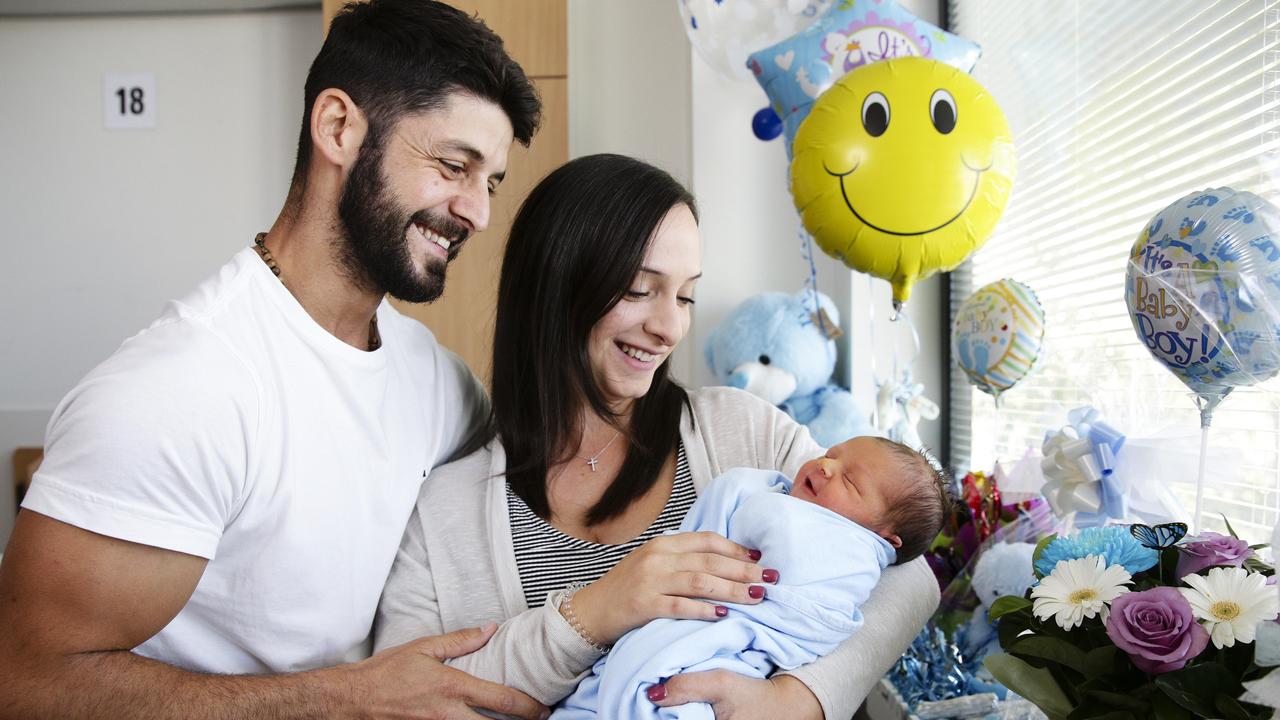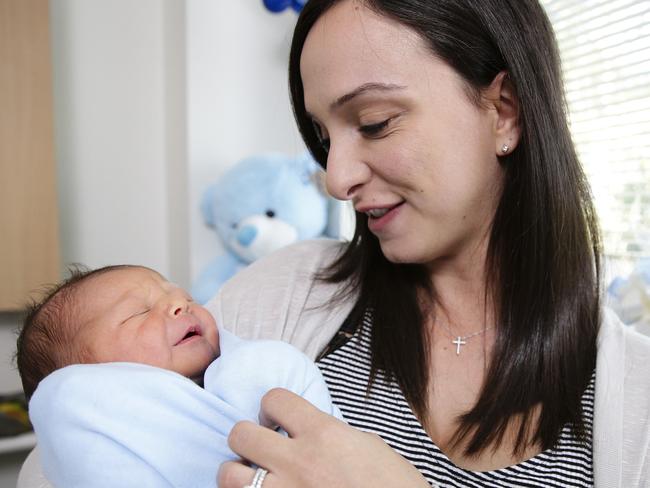Midwives now tell new mothers any amount of breast milk better than nothing
MORE women are breastfeeding their babies, even if just a little bit, thanks to a massive shift in hospital procedures.

MORE women are breastfeeding their babies, even if just a little bit, thanks to a massive shift in hospital procedures.
Midwives have moved away from the rigid protocol that newborns should only be breastfed, and experts say this more relaxed approach is helping new mums.
While it’s still a case of “breast is best”, many midwives now tell new mothers any amount of breast milk is better than nothing.
The latest NSW Health data reveals 13,177 women, or about 13.4 per cent of new mothers, now leave hospital giving their baby at least some breast milk along with formula, compared with only about 6133 women (6.4 per cent) 10 years ago.

So, while the number of new mothers exclusively breastfeeding is down slightly (from 75,093 or 78.7 per cent to 73,524 or 74.9 per cent), breastfeeding rates overall are up — from 85.1 per cent to 88.3 per cent.
Westmead Hospital maternity head Annie Fleming said midwives encourage new mothers to breastfeed as much as they feel comfortable or are able, while hospitals offer classes and support “for any mothers who are finding it tough”.
BULLIES PUSH NEW MUMS TO POST-NATAL DEPRESSION
RELIEF FOR MUMS WHO BATTLE TO BREASTFEED
Jeanette Nakhoul, who gave birth to son Jacob at Westmead Hospital this week, said breastfeeding made her feel closer to him:
“I’m so blessed and grateful to share this connection with my baby.”
Lactation consultant and midwife Belinda Moore said she was thrilled in the rise of breastfeeding, and said more education for new parents was crucial.
“Most women decide before they have their babies if they decide whether not they will try to breastfeed, so more pre-natal education for breastfeeding would be really beneficial.
“Most people will put their baby on the breast when they are born.”
While breast feeding rates of mothers leaving the hospital are high, they drop off considerably after the baby is six months.
“People give up because they aren’t educated about normal baby behaviour and how babies actually eat, they want to share the load with their husband and they are returning to work. There can be low social support,” she added.
“Pre-natal education should be more accessible, and for dads — so they can normalise it too.”
Originally published as Midwives now tell new mothers any amount of breast milk better than nothing




